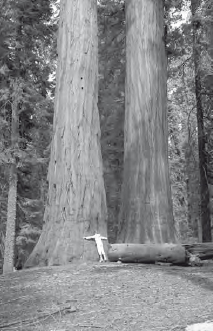New PhilosophyEnvironmental Philosophy |
What general philosophical problems does environmentalism pose? |
In more traditional philosophical terms, there are ontological and metaphysical issues involved in what counts as a “unit” in environmentalism. (It is important to define the unit because that defines the subject matter theoretically and makes it possible to keep track of what should be preserved, in practical terms.) Is it one animal, a group, an entire ecological niche, a region, a country?
In broad human terms, the problems related to our natural environment are likely to be central in twenty-first century life—everywhere. The dependence of humans on the natural planet and the dependence of the natural health of parts of the planet on human activity will probably become an even more absorbing, distressing, and contentious subject than it already is.
Since of all the new subjects in philosophy, environmentalism is probably the most popular, it should be noted that the following books are all good sources of additional information: William F. Baxter, People or Penguins: The Case for Maximum Pollution (1974); Ted Benton, Natural Relations: Ecology, Animal Rights & Social Justice (1993); Jay Bernstein, Adorno: Disenchantment and Ethics (2001); J.B. Callicott, In Defense of the Land Ethic: Essays in Environmental Philosophy (1989); B. Devall and G. Sessions, Deep Ecology: Living as if Nature Mattered (1985); Robert Heilbroner, “What Has Posterity Ever Done for Me?,” in New York Times Magazine (January 19, 1975); Thomas E. Hill, “Ideals of Human Virture and Preserving the Natural Environment,” in Ethics, Volume 5 (1983); D. Jamieson, editor, A Companion to Environmental Philosophy (2001); Aldo Leopold, A Sand County Almanac (1949); A. Naess, Ecology, Community, Lifestyle (reprint, 1989); R. Nash, The Rights of Nature: A History of Environmental Ethics (1989); V. Plumwood, Environmental Culture (2002); and Peter Singer, Animal Liberation: A New Ethics for our Treatment of Animals, (1975, 1977, 1983).

